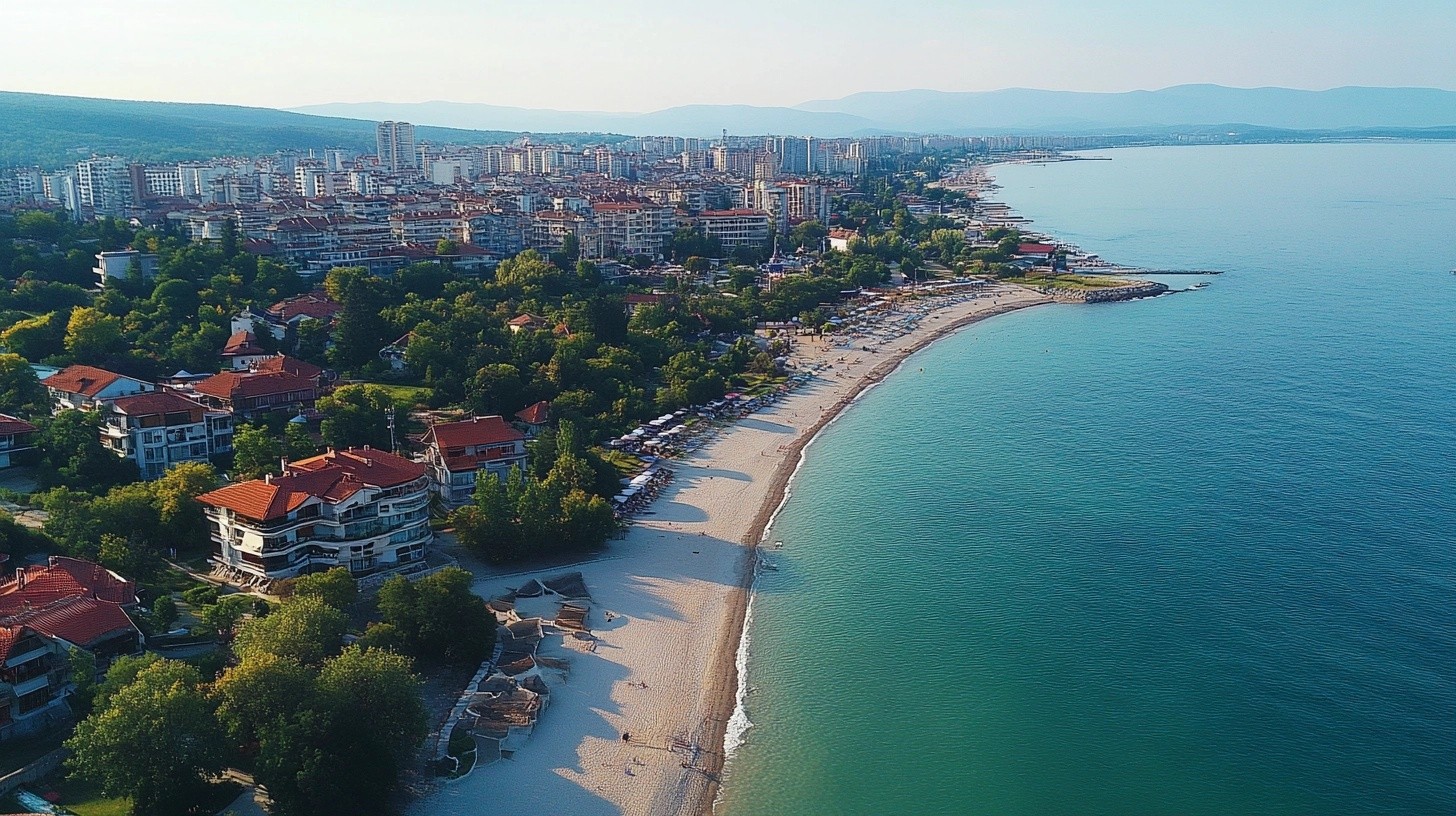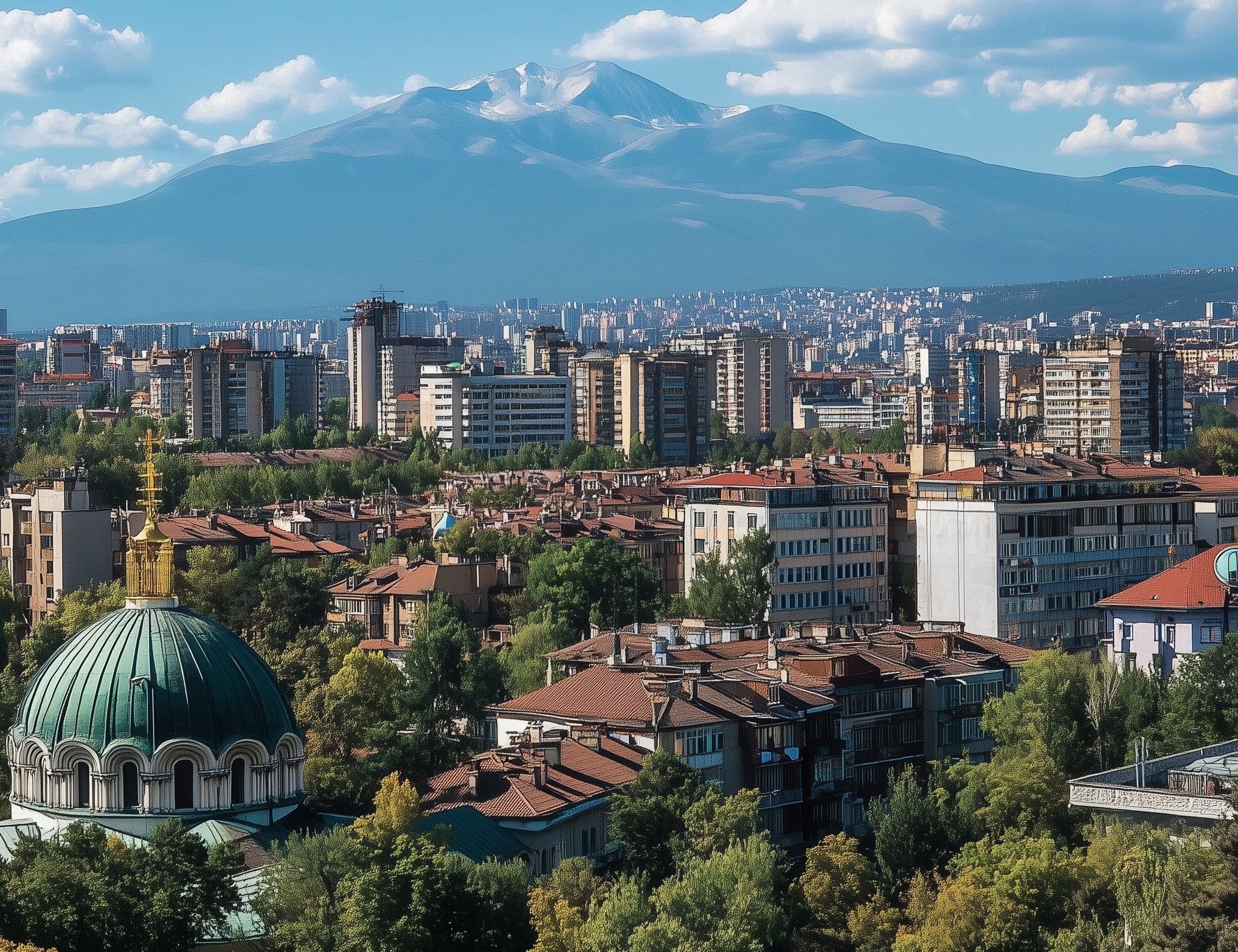Record yields in Bulgaria: how far will the real estate market go?
As Bulgaria prepares to join the eurozone in 2026, the real estate market is experiencing a surge in prices, attracting investors seeking returns… but also capital of dubious origin. This article explores the current dynamics, the risks of money laundering, and the implications for key sectors of the Bulgarian economy.
Economy
4mn

The imminent entry of Bulgaria into the eurozone is generating varied expectations. On one hand, there is optimism about the economic opportunities it could bring, but a more nuanced reality is also emerging. Indeed, some unscrupulous players in the criminal underworld are looking to exploit this transition to legalise funds of dubious origin. But how are they going about it and what are the expected impacts on the real estate market as well as other economic sectors? Let’s delve into this crucial question that concerns not only economic experts but also financial regulators.
Why is real estate at the centre of concerns?
With the expected integration of Bulgaria into the eurozone at the beginning of 2026, there is already frantic activity observed in several segments of its economy, particularly in real estate. The Bulgarian real estate market is indeed experiencing a surge in prices over the past few years, with a significant increase registered between 2022 and 2024. This phenomenon is particularly intensifying in Sofia as well as in other major cities.
The main reason for this enthusiasm for real estate lies in its ability to mask dubious transactions that appear legitimate. Buying properties at high prices allows criminals to discreetly recycle their illegitimate cash while taking advantage of asset appreciation. Furthermore, the persistent attractiveness of upscale residential areas amplifies this trend. Currently, in some sought-after districts of the capital, the cost per square metre can reach up to 10,000 euros, indicating an influx of investors eager to secure their money.
Between legitimate aspirations and fraudulent practices
Thus, while many see access to the euro as an opportunity for increased prosperity, there are also grounds for concern. The standards and regulations of the eurozone aimed at ensuring economic transparency could be circumvented by fraudulent practices. To curb these activities, enhancing vigilance and regulation in the real estate sector has become paramount.
Which other sectors are vulnerable to money laundering?
Besides real estate, other Bulgarian economic sectors can also serve as fertile ground for money laundering during this pivotal period. Hospitality, the tourism industry, and even retail are seeing an influx of funds of suspicious origin. These areas are ideally positioned to accommodate dubious capital under the guise of legitimate investment.
In these contexts, new businesses suddenly emerge, often offering inexplicably cheap services or whose financial viability appears alarming. There may be activities registering business volumes disproportionate to their actual size. This necessitates better monitoring of financial flows between clients and their establishments.
When does technology come into play?
In the face of these economic threats, technology plays a key role in preventing financial irregularities. For example, advanced data analysis methods now allow for the rapid detection of anomalies in financial transactions, thereby identifying suspicious patterns indicative of money laundering. Close collaboration between banks and judicial authorities is essential to strengthen the verification of gateway accounts used for this purpose.
The socio-economic impact of these criminal activities
The infiltration of capital from misconduct into the formal economy not only poses a risk to overall macroeconomic stability but also directly affects the daily lives of Bulgarian citizens. When real estate prices soar due to illicit activities, local families struggle more to gain access to ownership, exacerbating social inequalities.
Moreover, these fraudulent practices distort fair competition. As a result, transparent and ethical businesses find themselves at a disadvantage, undermining their development while those manipulating the figures prosper artificially. In the long term, this can deter legitimate foreign investment, concerned about an economic environment rife with generational uncertainty.
What is Bulgaria doing to counter this threat?
To anticipate these challenges, Bulgaria is actively working to prevent the use of its territory as a financial hub. The country has implemented several coordinated initiatives aimed at cleaning up its exchanges. These efforts mainly include strengthening KYC (Know Your Customer) procedures and actively promoting robust anti-money laundering policies among banking institutions.
To complement this strategy, the government collaborates with various European bodies capable of providing the expertise and resources necessary. As a result, educational campaigns raising awareness at all institutional levels about the associated risks are encouraged. Of course, the overarching goal remains the definitive establishment of a culture of diligence regarding regulatory obligations.
Implementation of specialized training programs to better understand the issues surrounding modern money laundering.
Encouragement of the creation of shared common platforms facilitating instant detection/billing of suspicious activities.
Initiatives aimed at modernizing the legislative framework preparing for the envisaged monetary transition, fully secured to a uniformly European standard and globally recognized.
What are the prospects for Bulgaria's economic future?
Despite these complex challenges, Bulgaria's future entry into the eurozone undoubtedly promises a multitude of advantages. First, integrating this single currency offers the country easier access to diversification in the European market, thus enhancing the nation’s overall appeal to international investors. They are potentially interested in an expansion mixed with sustainable growth.
However, only increased vigilance combined with the widespread adoption of reasonable and adaptive solutions can prevent the permanent obstacles that always accompany similar opportunities. For integration to succeed without causing too much internal upheaval or external disruption, everyone – whether a private player, an individual competent actor or a public official – will bear the responsibility for adhering to the fundamental requirements of legal security.










